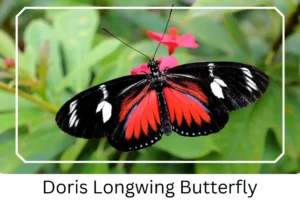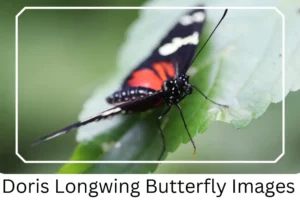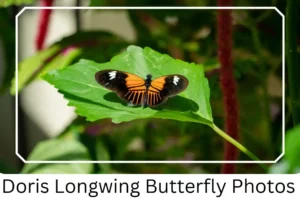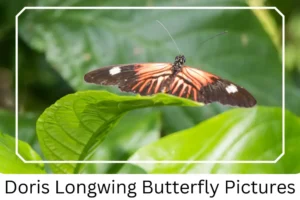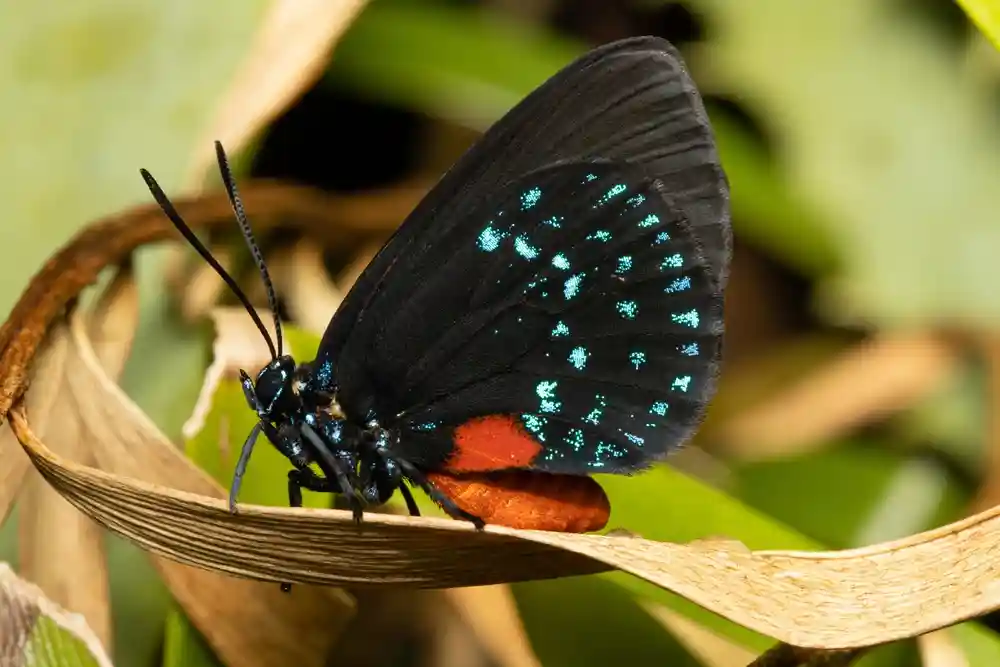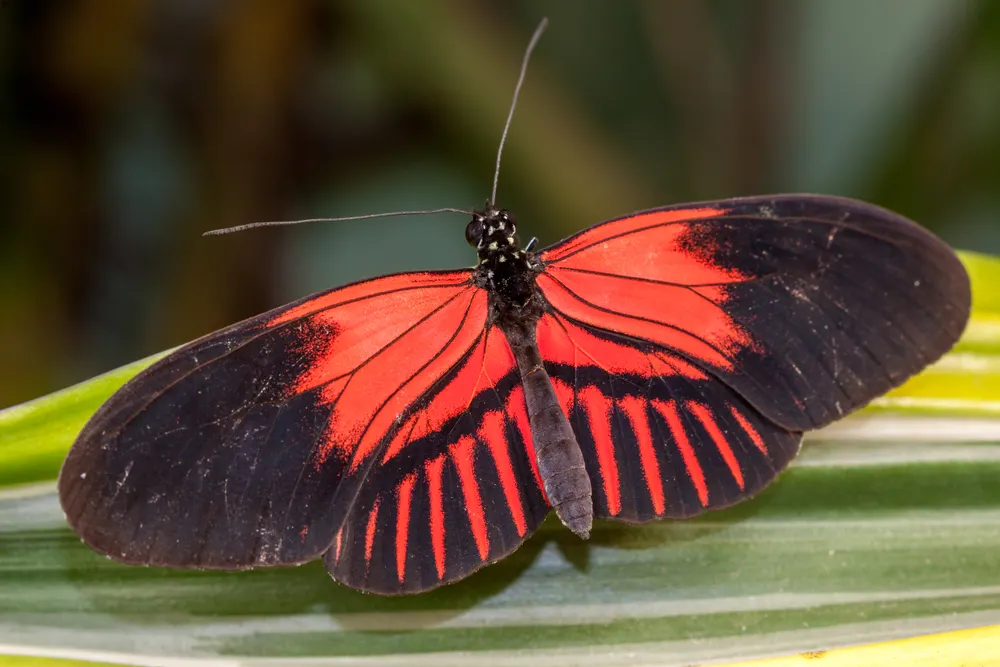Doris Longwing (Laparus doris)
The Doris Longwing, a mesmerizing member of the ‘longwing’ butterfly group, stands out for its distinctive beauty and intriguing behaviors. This species, scientifically known as Laparus doris, is part of a diverse family comprising 71 species, distributed across various habitats and regions. Its presence enriches the ecological tapestry of its range from Mexico to Bolivia, playing a pivotal role in the pollination process and the natural balance of its environment.
Scientific Classification
- Family: Nymphalidae
- Genus: Laparus
- Common names: Doris
- Scientific Name: Laparus doris
Overview
Renowned for its vivid colors and graceful flight, the Doris Longwing captivates observers and butterfly enthusiasts alike. This butterfly exhibits a unique lifecycle and adaptations that enable it to thrive in its preferred rainforest habitats. It favors the rich, diverse flora of sunny, open lands and slow-flowing streams, where it has developed specialized breeding and feeding strategies to sustain its population and ensure the continuation of its species.
Description and Identification
Caterpillar
The journey of the Doris Longwing begins with its caterpillar stage, featuring a striking greenish-yellow base color. This larval form is adorned with transverse black bands and branched black spines along its back and sides, creating a distinctive appearance. It primarily feeds on the leaves of the Passiflora plant, preparing for its transformation into a pupa.
Pupa
The chrysalis stage showcases a tan to reddish-brown hue, devoid of spines, which allows it to blend seamlessly with the surrounding environment. It is commonly found hanging from dry twigs or tree trunks, utilizing camouflage to evade predators during this vulnerable phase of its lifecycle.
Adult Butterfly
Upon reaching adulthood, the Doris Longwing displays a breathtaking array of colors and patterns.
Sexual Dimorphism: This species shows no visible sexual dimorphism, making it challenging to differentiate between males and females based solely on appearance.
Color and Appearance: The adult butterfly boasts elongated primary wings with two sets of white to cream spots against a jet-black base. The secondary wings often feature a bright orange, blue, red, or cream patch, resembling finger digits. The underside of the wings mirrors the dorsal side’s coloration, providing a consistent display whether the wings are open or closed.
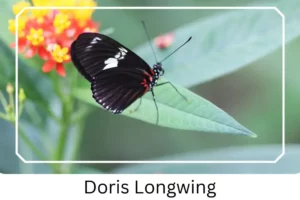
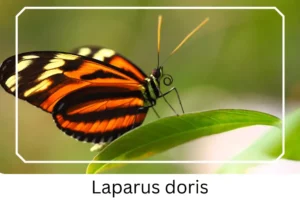 Average Wingspan: The wingspan of the Doris Longwing ranges from 2¾ to 3½ inches, contributing to its elegant flight.
Average Wingspan: The wingspan of the Doris Longwing ranges from 2¾ to 3½ inches, contributing to its elegant flight.
Flight Pattern: Its flight is characterized by a slow and graceful motion, allowing it to gracefully navigate through its habitat.
Eggs
The reproductive cycle of the Doris Longwing includes the laying of yellow eggs in clusters of up to 200, ensuring the next generation’s survival.
Quick Facts | |
| Distribution | Common from Mexico to Bolivia. |
| Habitat | Prefers rain forests and sunny, open lands often near slow-flowing streams and rivers. |
| Lifespan of Adults | Can live up to 9 months. |
| Host Plants | Shows a preference for Passiflora but also feeds on Psiguria and Psychotia. |
| Adult Diet | Primarily consumes flower nectar and pollen. |
How to Identify Doris Longwing?
Identifying a Doris Longwing butterfly can be an enriching experience, thanks to its distinctive features. When trying to spot this species, look for its elongated wings adorned with unique patterns of spots and vibrant color patches. The primary wings display a remarkable contrast of white or cream spots on a black base, while the secondary wings offer a glimpse of vivid colors. The slow, graceful flight pattern of the Doris Longwing, coupled with its preference for sunlit, open spaces near water sources, can also serve as key identification clues. Observing these butterflies around their host plants, particularly various species of Passiflora, can increase your chances of a sighting.
Did You Know?
- The Doris Longwing butterflies exhibit a unique dietary preference that aids in their reproduction. Females are particularly drawn to flowers of Psiguria and Psychotia, from which they extract proteins crucial for prolonged egg production.
- This species is part of a larger group known for their long wings and vibrant colors, contributing to their allure and the fascination they inspire among butterfly enthusiasts and researchers alike.
Conclusion
The Doris Longwing butterfly is not just a marvel of nature’s design but also an essential player in its ecosystem. Its life cycle, from the visually striking caterpillar to the graceful adult butterfly, illustrates the complexity and interconnectedness of nature. By understanding and appreciating these magnificent creatures, we can foster a deeper connection to the natural world and reinforce the importance of conserving the diverse habitats that sustain them.
Doris Longwing Pictures

Scientific Classification

- Family: Nymphalidae
- Genus: Laparus
- Common names: Doris
- Scientific Name: Laparus doris

